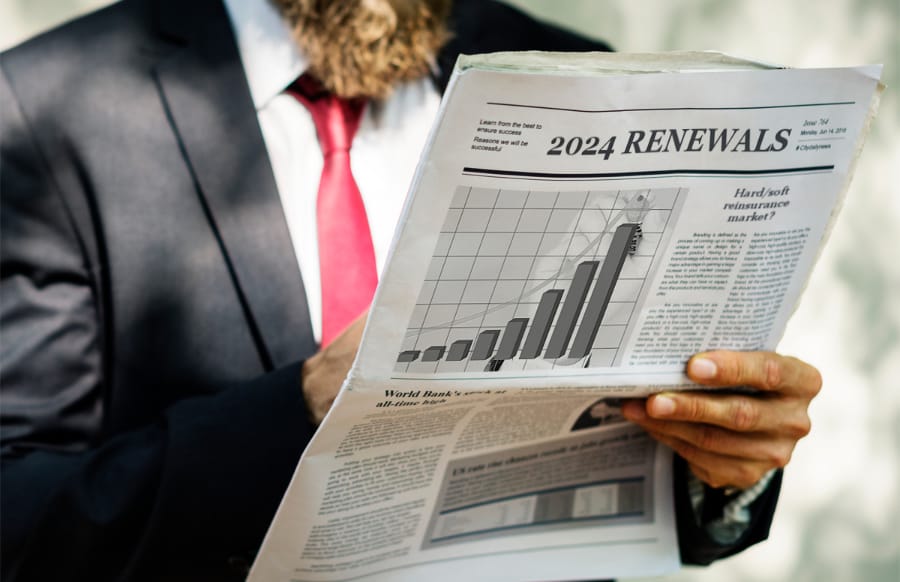Expected capital flows won’t disrupt reinsurance renewal discipline: KBW

According to analysts at KBW, in summing up their takeaways from the recent Monte Carlo Rendez-Vous meeting of the reinsurance industry, the capital flows currently experienced and being anticipated by the industry are not likely to disrupt discipline at the end of year renewals.
While there has been some increase to reinsurance capital through the first-half of the year, largely due to recovering investment portfolios and inflows to catastrophe bond funds on the ILS side, the capital build-up seen has not so far been sufficient to overshadow rising demand, or to narrow the evident capacity gap.
The January 2024 reinsurance renewals are anticipated to see more competition though, particularly at those higher-layers where reinsurer appetite is more elevated and the catastrophe bond market has offered an efficient alternative source of capacity.
As we’ve reported, the major reinsurance brokers are hoping to use that competitive environment to secure better execution for their clients at 1/1 2024.
But, even here, the KBW analyst team appear to believe that reinsurance returns aren’t going to be dented by a return to softening anytime soon.
Concluding after the Monte Carlo event, “Reinsurers’ expected 2024 returns should match or modestly exceed 2023 expected returns, with risk-adjusted (i.e., including claim cost inflation) rates likely flat to up modestly during the 1/1/24 renewals.”
Adding that, despite reinsurance rates and returns already being higher in the first-half of 2023, “Last year’s prevalent concerns (inflation, adverse and less-predictable weather, geopolitical uncertainty, etc.) persist, and six months of good results are far from balancing the preceding six years’ inadequate returns.”
On the outlook for January 2024, KBW’s analysts state, “The virtually unanimous view of the executives we met is that overall risk- adjusted (i.e., including claim cost inflation) rates will be flat to up modestly during the likely orderly January 1, 2024 reinsurance renewals even if the rest of Hurricane Season 2023 remains benign.”
Encouragingly, for reinsurance returns, the analysts did not encounter any suggestion that the industry might roll-back any of the terms and conditions gains that have been made in recent years.
In particular, they expect attachment points will be sustained.
“Similar to sustained pricing discipline, we heard almost no indications of reinsurers reconsidering last year’s material attachment point increases, with one executive noting (wisely, we think) that the regularly recurring losses in lower layers don’t represent ‘volatility’; they represent attritional, largely predictable costs appropriately borne by either primary insurers or their insureds,” they explained.
“Several executives noted that while they don’t expect to reverse last year’s rate increases, terms and conditions represent an event starker “no-go” area. There is still very little reinsurance appetite for aggregate covers,” they further explained.
Total reinsurance capacity continues to be seen as adequate, and the analysts paint last year’s abrupt hardening to reinsurers unwillingness to deploy capacity at inadequate returns, rather than a capacity issue.
However, “There probably isn’t enough capacity to reverse last year’s attachment point increases.”
KBW’s analysts state, “The broad sense is that capital inflows to date (including a small number of new company formations in progress, along with strong catastrophe bond issuance and some ILS investors’ stable or growing interest at current expected returns, all of which could aggregate to about $15 billion, or about half the reinsurance industry’s post-Katrina capital inflows) remain too low to materially disrupt overall discipline.”
$15 billion of new capital inflows to-date, including the start-ups that are in the works, is not going to be sufficient to absorb all the rising demand that is being seen, it appears.
Clearly, the insurance-linked securities (ILS) market is likely to raise more capital through year-end, with more inflows to the cat bond market expected, as well as to some sidecars and collateralised reinsurance structures.
But, ILS managers we’ve spoken with say they will prioritise returns over assets at year-end, which is a much healthier approach to renewals than we’ve seen in previous years where ILS inflows have been significant.
Read all of our reinsurance renewals news and analysis.






